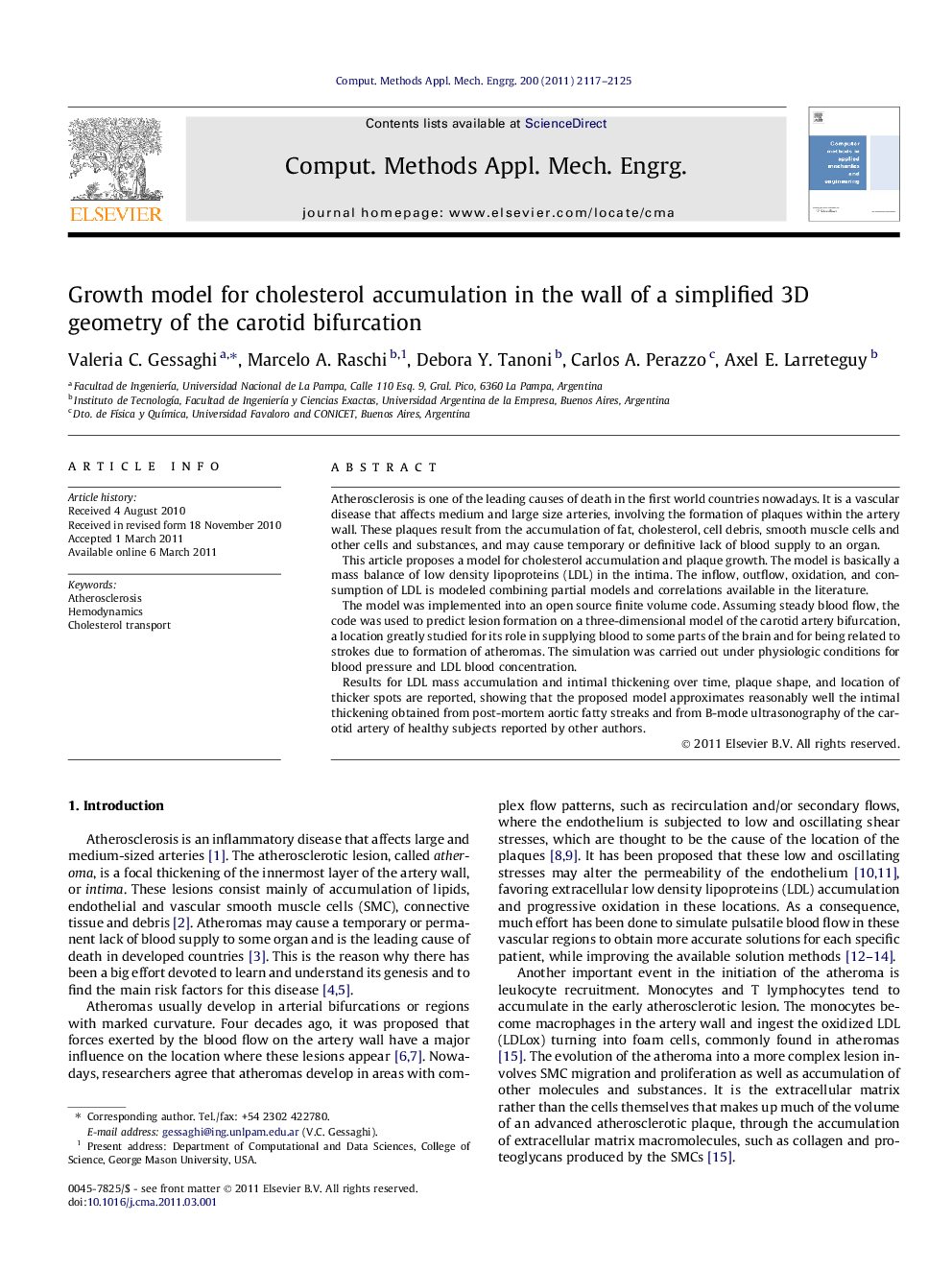| کد مقاله | کد نشریه | سال انتشار | مقاله انگلیسی | نسخه تمام متن |
|---|---|---|---|---|
| 498596 | 863003 | 2011 | 9 صفحه PDF | دانلود رایگان |

Atherosclerosis is one of the leading causes of death in the first world countries nowadays. It is a vascular disease that affects medium and large size arteries, involving the formation of plaques within the artery wall. These plaques result from the accumulation of fat, cholesterol, cell debris, smooth muscle cells and other cells and substances, and may cause temporary or definitive lack of blood supply to an organ.This article proposes a model for cholesterol accumulation and plaque growth. The model is basically a mass balance of low density lipoproteins (LDL) in the intima. The inflow, outflow, oxidation, and consumption of LDL is modeled combining partial models and correlations available in the literature.The model was implemented into an open source finite volume code. Assuming steady blood flow, the code was used to predict lesion formation on a three-dimensional model of the carotid artery bifurcation, a location greatly studied for its role in supplying blood to some parts of the brain and for being related to strokes due to formation of atheromas. The simulation was carried out under physiologic conditions for blood pressure and LDL blood concentration.Results for LDL mass accumulation and intimal thickening over time, plaque shape, and location of thicker spots are reported, showing that the proposed model approximates reasonably well the intimal thickening obtained from post-mortem aortic fatty streaks and from B-mode ultrasonography of the carotid artery of healthy subjects reported by other authors.
► We model the cholesterol accumulation in the early stages of an atherosclerotic lesion.
► We model the link between the cholesterol accumulation and the intimal thickening.
► We tested the model in a simplified 3D geometry of carotid bifurcation.
► We find good agreement between the model and in vivo wall thickening measured by others.
► Intimal thickening is predicted to grow linearly on average and non-linearly on focal spots.
Journal: Computer Methods in Applied Mechanics and Engineering - Volume 200, Issues 23–24, 1 June 2011, Pages 2117–2125